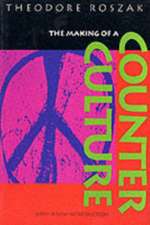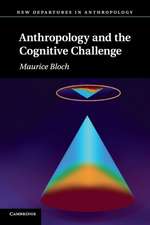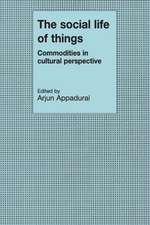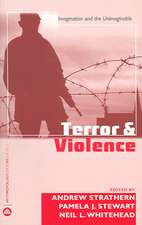Minangkabau Social Formations: Indonesian Peasants and the World-Economy: Cambridge Studies in Social and Cultural Anthropology, cartea 30
Autor Joel S. Kahnen Limba Engleză Paperback – 16 sep 2007
Din seria Cambridge Studies in Social and Cultural Anthropology
-
 Preț: 245.24 lei
Preț: 245.24 lei -
 Preț: 195.76 lei
Preț: 195.76 lei -
 Preț: 177.96 lei
Preț: 177.96 lei -
 Preț: 283.25 lei
Preț: 283.25 lei -
 Preț: 284.39 lei
Preț: 284.39 lei -
 Preț: 358.13 lei
Preț: 358.13 lei -
 Preț: 282.87 lei
Preț: 282.87 lei -
 Preț: 399.21 lei
Preț: 399.21 lei -
 Preț: 397.08 lei
Preț: 397.08 lei -
 Preț: 347.28 lei
Preț: 347.28 lei -
 Preț: 295.95 lei
Preț: 295.95 lei -
 Preț: 307.62 lei
Preț: 307.62 lei -
 Preț: 280.15 lei
Preț: 280.15 lei -
 Preț: 372.80 lei
Preț: 372.80 lei -
 Preț: 411.24 lei
Preț: 411.24 lei -
 Preț: 326.27 lei
Preț: 326.27 lei -
 Preț: 281.30 lei
Preț: 281.30 lei -
 Preț: 323.81 lei
Preț: 323.81 lei -
 Preț: 278.62 lei
Preț: 278.62 lei -
 Preț: 353.63 lei
Preț: 353.63 lei -
 Preț: 174.55 lei
Preț: 174.55 lei -
 Preț: 406.71 lei
Preț: 406.71 lei -
 Preț: 326.27 lei
Preț: 326.27 lei -
 Preț: 282.26 lei
Preț: 282.26 lei -
 Preț: 436.68 lei
Preț: 436.68 lei -
 Preț: 327.22 lei
Preț: 327.22 lei -
 Preț: 414.46 lei
Preț: 414.46 lei -
 Preț: 284.78 lei
Preț: 284.78 lei -
 Preț: 289.78 lei
Preț: 289.78 lei -
 Preț: 283.03 lei
Preț: 283.03 lei -
 Preț: 279.00 lei
Preț: 279.00 lei -
 Preț: 398.16 lei
Preț: 398.16 lei -
 Preț: 340.24 lei
Preț: 340.24 lei -
 Preț: 277.65 lei
Preț: 277.65 lei -
 Preț: 461.13 lei
Preț: 461.13 lei -
 Preț: 390.90 lei
Preț: 390.90 lei -
 Preț: 284.78 lei
Preț: 284.78 lei -
 Preț: 347.50 lei
Preț: 347.50 lei -
 Preț: 281.49 lei
Preț: 281.49 lei -
 Preț: 278.24 lei
Preț: 278.24 lei
Preț: 284.17 lei
Nou
Puncte Express: 426
Preț estimativ în valută:
54.39€ • 59.10$ • 45.72£
54.39€ • 59.10$ • 45.72£
Carte tipărită la comandă
Livrare economică 21 aprilie-05 mai
Preluare comenzi: 021 569.72.76
Specificații
ISBN-13: 9780521040297
ISBN-10: 0521040299
Pagini: 248
Dimensiuni: 153 x 229 x 17 mm
Greutate: 0.37 kg
Editura: Cambridge University Press
Colecția Cambridge University Press
Seria Cambridge Studies in Social and Cultural Anthropology
Locul publicării:Cambridge, United Kingdom
ISBN-10: 0521040299
Pagini: 248
Dimensiuni: 153 x 229 x 17 mm
Greutate: 0.37 kg
Editura: Cambridge University Press
Colecția Cambridge University Press
Seria Cambridge Studies in Social and Cultural Anthropology
Locul publicării:Cambridge, United Kingdom
Cuprins
List of maps, figures and tables; Preface; 1. Introduction; 2. The internal and the external in a Minangkabau village: an introduction to the world of the concrete; 3. Adat, kinship and marriage: the constitution of the subsistence community; 4. Agriculture and subsistence: the reproduction of the subsistence community; 5. Commodity production in the village economy: the case of blacksmithing; 6. Occupation, class and the peasant economy; 7. The structure of petty commodity production; 8. Mercantilism and the evolution of 'traditional' society; 9. The emergence of petty commodity production; 10. Conclusions: the concept of a neo-colonial social formation; Bibliography; Glossary of Minangkabau terms; Index.
Descriere
An anthropological investigation of the nature of an underdeveloped peasant economy in Indonesia.














